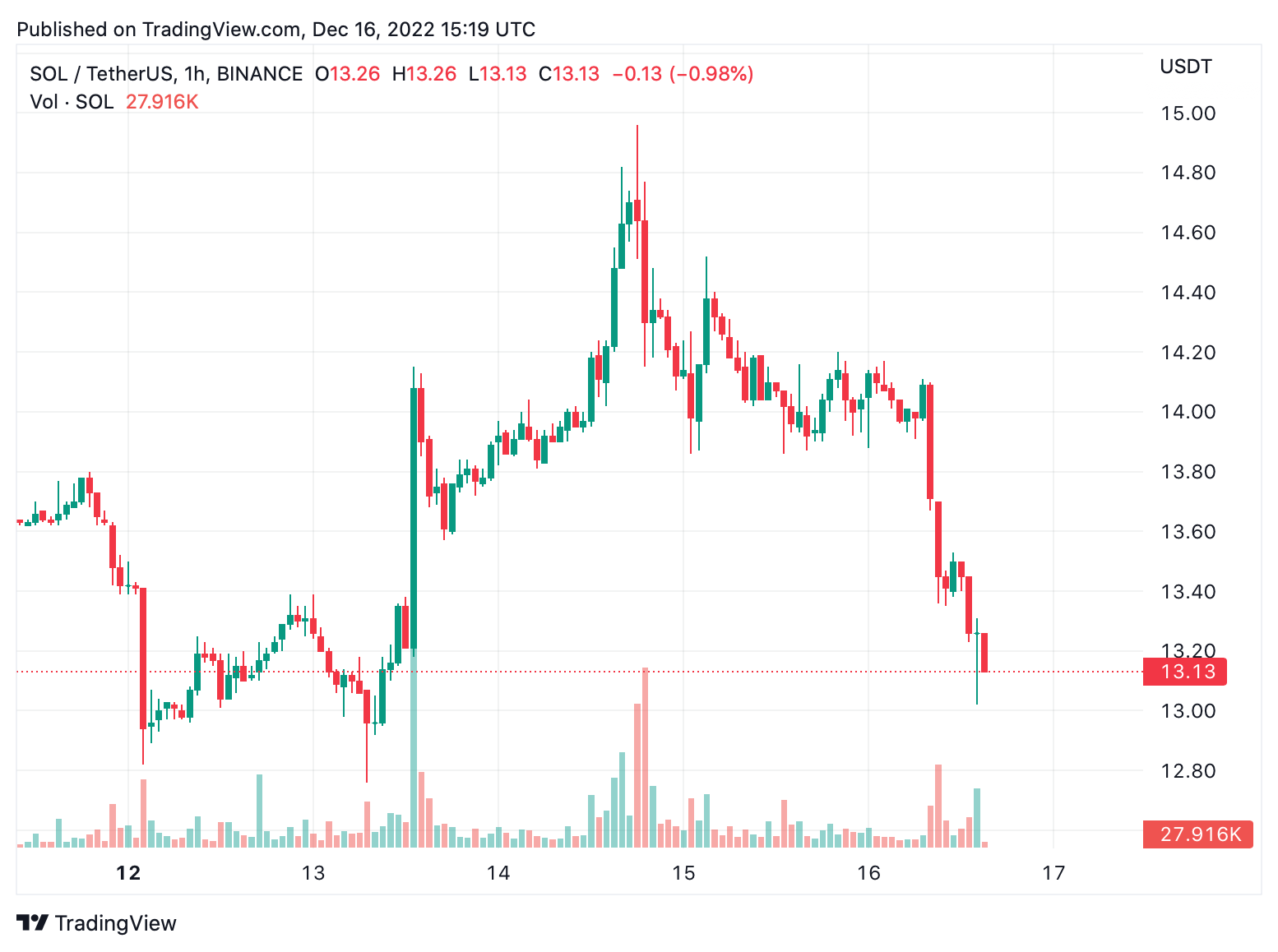Amid the market chaos within the crypto economy and following the climactic FTX collapse, the crypto asset solana has been one of the hardest hit during the last 30 days. Since FTX’s fallout, the digital currency lost 8.5% over the last month against the U.S. dollar and to date, it’s down 94.9% since the all-time high solana reached on Nov. 6, 2021.
Solana’s Prior Relationship With FTX, Alameda Continues to Hurt the Project, Solana-Based Exchange Raydium Exploited for $2 Million
Since the collapse of FTX, the crypto asset solana (SOL) has taken a beating and the digital asset that was once a top ten contender is now close to being pushed out of the top 20 standings in terms of market capitalization. The reason the Solana project has been hit so badly compared to other crypto assets in the space is because of the project’s deep relationship with FTX and Alameda Research. The project’s team members published a post highlighting the connection as the Solana Foundation wrote about the situation on Nov. 9.

The foundation admitted it had “~$1M in cash or cash equivalents on FTX.com as of 11/6/22 when FTX.com ceased to process withdrawals.” Additionally, the Solana Foundation had “3.24m shares of FTX Trading LTD common stock,” “3.43m FTT tokens,” and “134.54m SRM tokens.” Furthermore, 58.08 million SOL was sold to FTX and Alameda since 2020. Making matters worse, two forms of Solana-wrapped bitcoin (SOBTC) and Solana-wrapped ethereum (SOETH) have lost their pegs. FTX was responsible for minting the wrapped tokens and ever since the collapse, they have traded for well below BTC’s and ETH’s spot market values.
There were also issues with the decentralized exchange software built on Solana, Serum, as developers had to fork the project because FTX had control of the project’s “upgrade key.” Additionally, the hacker dubbed “FTX Accounts Drainer” held a significant portion (20.28%) of the serum (SRM) supply. All of these factors had affected the Solana project negatively, and it did not help that Solana suffered from significant outages one month prior to the FTX-related issues. Solana’s rich list stats do not help the project much either, as 50 holders own 25.36% of the SOL supply, and 100 holders own 33.90% of the supply. That’s a significant number of SOL for 100 owners out of the 9,154,449 SOL holders today.
SOL has lost 8.5% in value during the last 30 days and since Nov. 6, 2021, the crypto asset is down 94.9% against the greenback. Cryptocompare.com metrics indicate that 38.5% of SOL trades on Dec. 16 are paired with tether (USDT). 34.06% of SOL swaps are traded against the U.S. dollar, and 17.44% of SOL trades are swapped against BUSD. The most active exchanges today dealing with SOL trades include Coinbase, Binance, and Digifinex. On Nov. 6, 2021, SOL was ranked in the fourth position in terms of the largest crypto market caps and today, SOL is struggling to hold the 18th position.
Solana’s market performance suffered even more bad news on Dec. 16 as the Solana-based exchange Raydium was exploited for $2 million. After the Raydium discovery highlighted that $2 million was “bridged to ETH,” SOL’s market value dropped even more on Friday. By 10:15 a.m. (ET) SOL lost 6.1% against the greenback following the Raydium exploit reports.
Tags in this story
18th position, alameda, data, ftx, FTX Accounts Drainer, FTX and Alameda Relationship, Market Cap, market metrics, Market Update, metrics, Outages, Raydium Hack, Rich List, Serum, SOL, SOL holders, SOL owners, SOL wallets, Solana, Solana (SOL), solana FTX, Solana Rich List, SRM, swaps, Tether, Trades, USDT
What do you think about Solana’s hardships and its recent market performance? Let us know what you think about this subject in the comments section below.
![]()
Jamie Redman
Image Credits: Shutterstock, Pixabay, Wiki Commons
Disclaimer: This article is for informational purposes only. It is not a direct offer or solicitation of an offer to buy or sell, or a recommendation or endorsement of any products, services, or companies. Bitcoin.com does not provide investment, tax, legal, or accounting advice. Neither the company nor the author is responsible, directly or indirectly, for any damage or loss caused or alleged to be caused by or in connection with the use of or reliance on any content, goods or services mentioned in this article.



